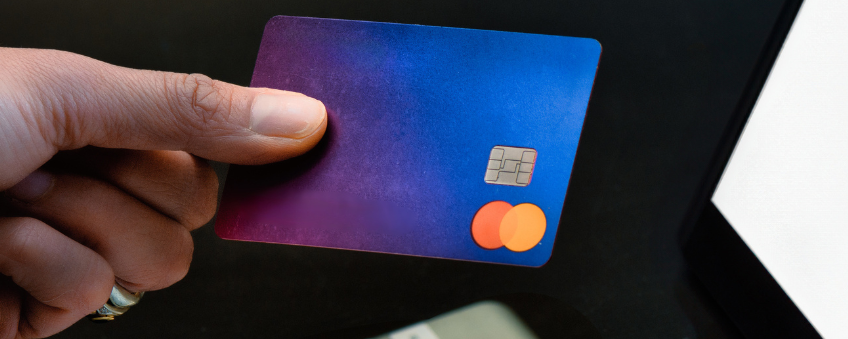In the new digital era, we've become increasingly comfortable implementing artificial intelligence (AI) into our daily lives. Professionally, we use AI tools to automate tasks. At home, we consult chatbots for answers to almost any question. There's no doubt that this evolving technology benefits merchants and consumers alike. But would you trust it with your finances? With Visa and Mastercard's new AI agents, we're now faced with that very question as the eCommerce world rapidly adapts.
Visa and Mastercard’s agent-based payments technology promises to automate the consumer shopping experience from start to finish. Whether buying groceries or booking travel, these agents are designed to research, compare, and purchase on behalf of the average shopper. This feature may be revolutionary for society, freeing us from mundane errands to pursue more high-level tasks and passion projects. However, it could also lead to an uptick in eCommerce fraud and chargeback scams if not adequately regulated. To better understand how it will impact consumer and business culture, let’s dive into Visa and Mastercard’s AI shoppers, what they mean for merchants, and what the future of commerce holds.
Key Takeaways
|
Mastercard’s Agent Pay: What to Expect
Imagine you own a small textile company that typically orders materials overseas. Through Mastercard Agent Pay, your AI agent will not only handle the sourcing and finalizing of payment terms but also organize shipping logistics with an international supplier on your behalf. The agent will then complete the purchase with a Mastercard virtual corporate token, and your cost-efficient, expedited delivery will be on its way.
Although giving AI this amount of autonomy may seem odd, this outlines a typical scenario when using Agent Pay’s token technology.
Mastercard’s Online Fraud Solutions
According to the Federal Trade Commission, fraud losses related to online shopping reached around $750 million in 2024, part of a record $12.5 billion in overall consumer losses. To counteract this large-scale trend, Mastercard has put guardrails in place.
Tokenization
Mastercard Agentic Tokens allows payments to be initiated through conversational interfaces like voice or chat, signaling the AI agent to get to work. All parties, from consumers to merchants to processors, will be able to recognize transactions facilitated by the agents, making fraudulent charges easier to catch. Mastercard will also work with acquirers and checkout platforms like Braintree and Checkout.com to enhance its tokenization technology to ensure optimal security.
Identification
Through Mastercard’s cybersecurity and authentication capabilities, merchants and consumers will be better protected against fraudsters during the transaction process. Its agents facilitate accurate customer authentication through on-device biometrics, flagging agent transactions that seem unfamiliar or unrecognizable. As an added benefit for merchants, consumer verification will enable product recommendations, free delivery, rewards, and discounts.
Authentication
This program will allow Mastercard to securely register and authenticate its agents before they make a purchase. Clear consumer control parameters will be put in place, allowing customers to decide how and when they buy.
Visa’s Intelligent Commerce: What to Expect
With Visa’s Intelligent Commerce program underway, the card network aims to revolutionize the payments industry by leveraging its decades of trust and experience.
Illustrating this goal, Visa’s Chief Product and Strategy Officer Jack Forestell stated, “Just like the shift from physical shopping to online, and from online to mobile, Visa is setting a new standard for a new era of commerce.” He continued, “Now, with Visa Intelligent Commerce, AI agents can find, shop and buy for consumers based on their pre-selected preferences. Each consumer sets the limits, and Visa helps manage the rest.”
By connecting their Visa credentials to AI models like ChatGPT, shoppers can find the perfect sweater or book the ideal honeymoon in significantly less time. Visa is also working with AI industry leaders like Anthropic, IBM, Microsoft, Mistral AI, OpenAI, Perplexity, Samsung, and Stripe to provide shoppers with a more personalized, secure AI commerce experience. This can symbiotically benefit merchants, mainly if these chat models refer customers to their businesses.
Visa’s Online Fraud Solutions
Visa’s goal is to empower both merchants and consumers by creating a simple, secure, and personalized commerce experience.
AI-Ready Cards
Tokenized digital credentials replace traditional card details to boost consumer security and simplify integration for developers. They authorize a designated agent to act for the consumer, enabling AI-powered identity verification. Control remains solely with the consumer, who decides when and how their payment credentials are used.
AI-Powered Personalization
The consumer remains in control, sharing basic Visa spending and purchase information to enhance agent performance and tailor shopping recommendations.
Secure AI Payments
Consumers can set spending limits and rules, giving agents clear transaction guidelines. Visa receives real-time commerce signals, allowing immediate transaction controls and improved dispute management.
Fraud and Chargeback Risks
Despite many institutions' best efforts to combat financial fraud, there remains a tremendous risk. According to a 2024 Biocatch financial crime survey, 51% of reported organizations lost between $5 million and $25 million to AI-based threats in 2023. 91% of banking institutions are reevaluating their use of voice verification, due to criminals’ talent for voice cloning. And 69% believe that fraudsters are more equipped to use AI for financial crimes than banks are at stopping them. On the consumer end, 71% of scam victims were deceived into giving personal information due to the sophistication of current phishing attacks.
With these staggering insights, it’s understandable to question whether Visa and Mastercard’s efforts to prevent eCommerce fraud are enough. Their agent technology is new, but financial institutions are working around the clock to get smarter and faster at securing credit card processing. Currently, 74% of global organizations use AI to detect financial crimes, creating more opportunities to learn how fraudsters operate and create strategies against them. Still, even if most fraud decreases, other issues could arise.
With consumers placing so much of their trust in AI shoppers, there could be a higher risk of chargebacks or chargeback scams. Maybe the customer doesn’t remember requesting the order. Maybe they get buyer's remorse and contact their banks. Either way, this can become a hindrance to merchants who need as transparent a paper trail as possible when accepting payment. It’s too soon to tell if chargebacks will become a larger problem, but merchants should stay alert and ensure their systems are updated with the latest security and compliance tools.
AI and the Future of Commerce
Whether Visa and Mastercard’s AI agents are positive for the marketplace overall, they will clearly become part of our new reality. The commerce landscape is changing quickly, not just with AI shopping but with the increasing digitalization of consumer culture.
Mastercard has begun rolling out numberless debit cards, leaning into its tokenization technology. Gen Z is switching to alternative online payment methods, like Buy Now, Pay Later (BNPL), giving buyers flexibility when paying. Google is also launching new AI shopping assistant tools, which connect to Gemini via AI Mode and come with realistic virtual try-on options. Ultimately, consumers will continue to gain more opportunities to simplify and offload their spending, further depersonalizing the relationship between customer and merchant.
This progression may give retailers pause, but there is also an inevitability that commerce will continue to grow more virtual, and AI will play a significant part in that. As time progresses, fraud prevention tools should continue to get savvier to follow suit, but one question remains: where will we draw the line?






